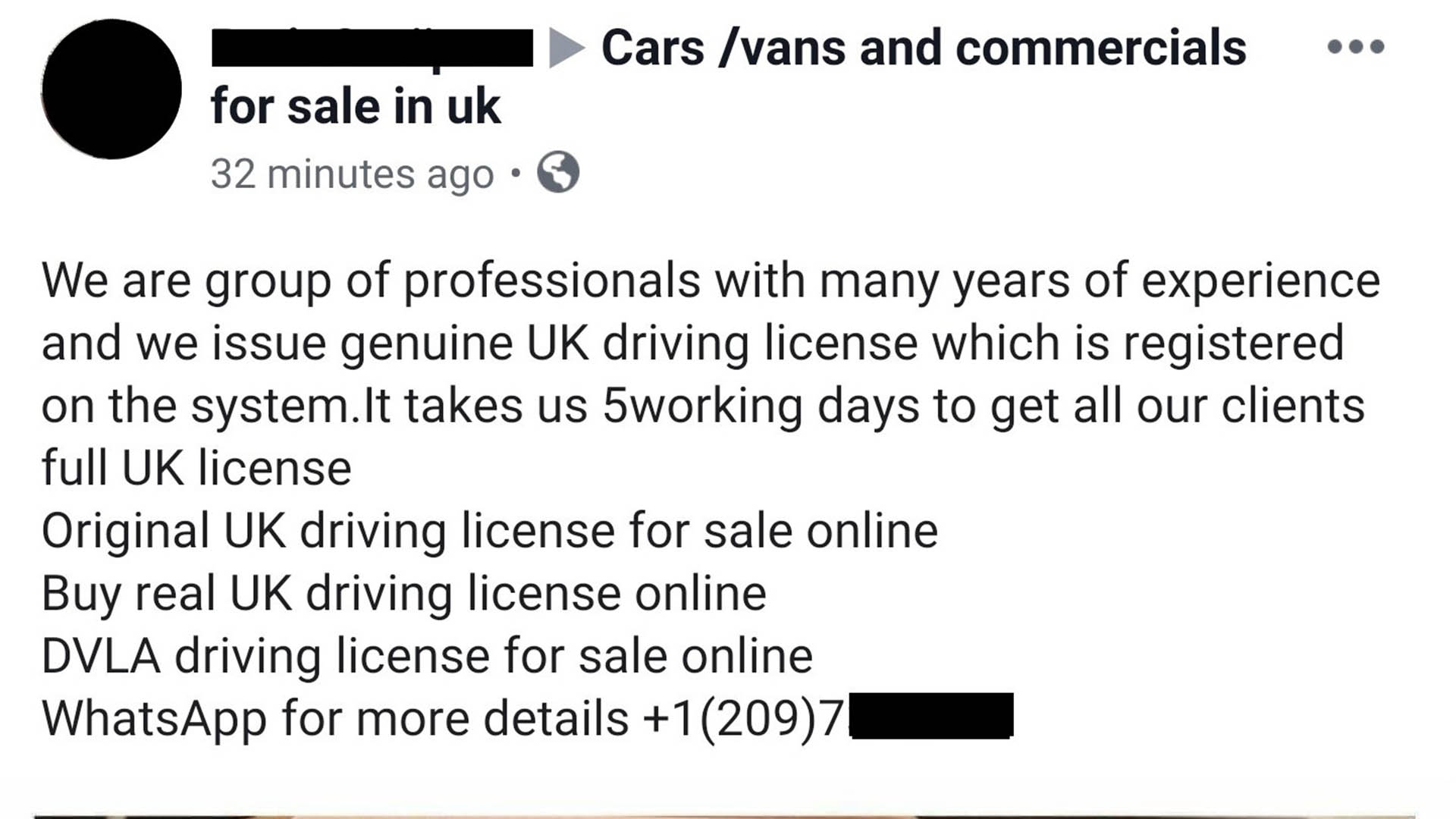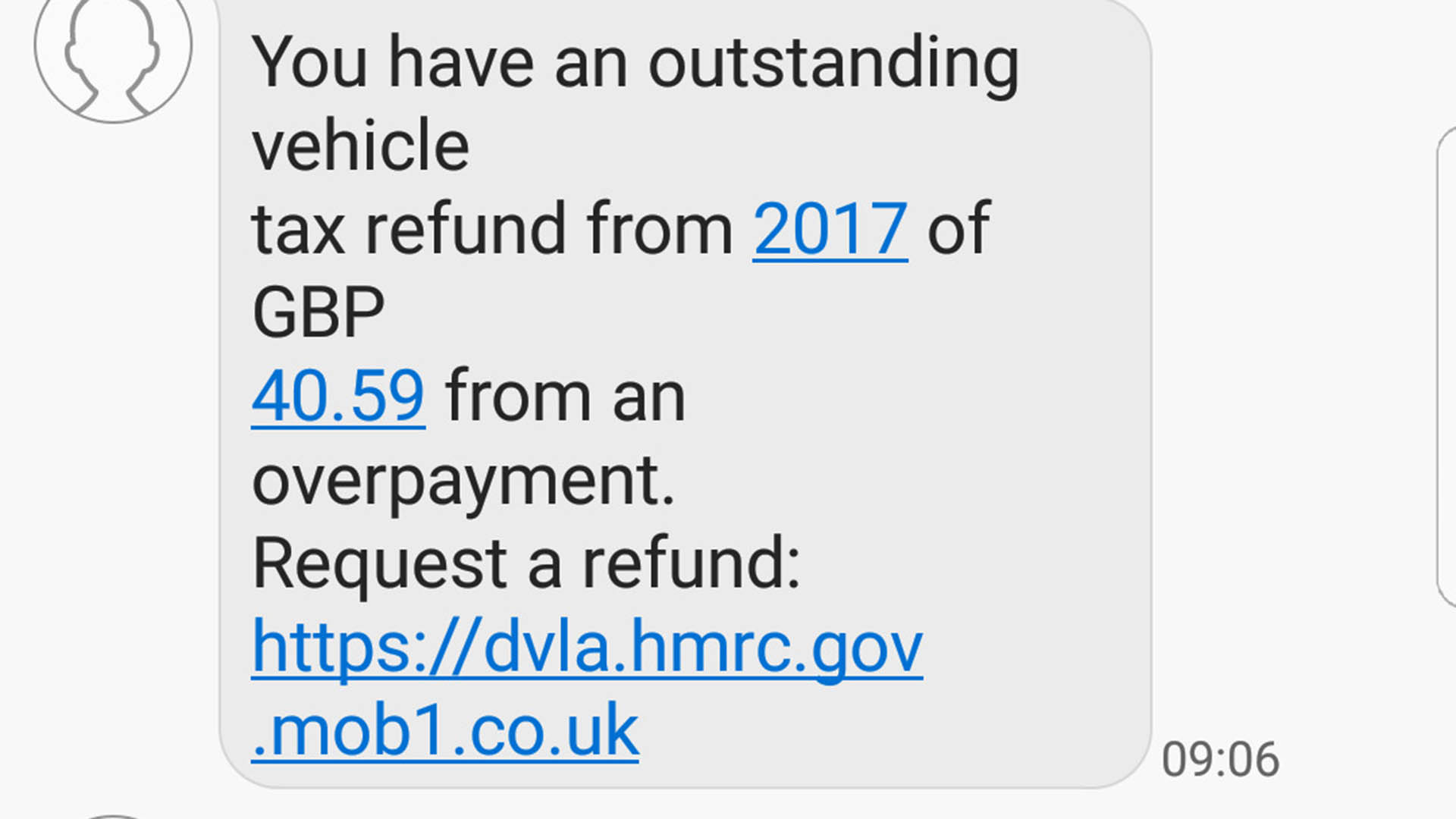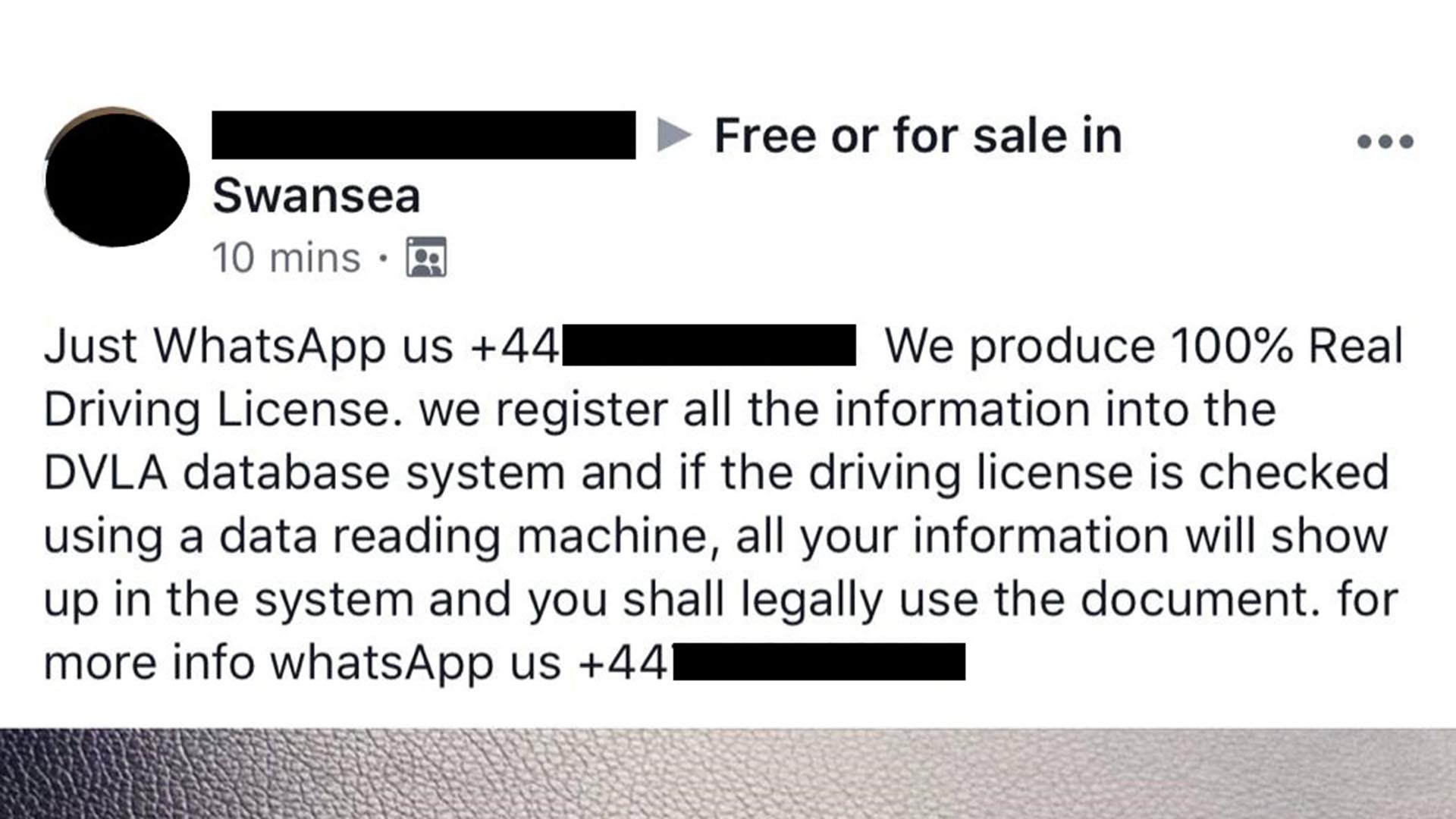
Latest figures show a 20 percent increase in the number of scams reported to the Driver and Vehicle Licensing Agency (DVLA).
To protect motorists, the DVLA has released images of the new scams that are used to trick motorists. These include links to fake services, and driver and vehicle documents for sale on the internet.
ALSO SEE: Drivers in Dorset targeted by smoking engine scam
Drivers reported seeing Facebook adverts advising motorists to contact WhatsApp numbers to buy a “100 percent real” driving licence. In a separate social media post, motorists were offered non-existent ‘DVLA services’ including ‘wipe ban’, ’wipe points’ and ‘endorsements removed’.
A common trick is for fraudsters to send text messages offering Vehicle Excise Duty (VED) refunds in the region of £40. The message is clear: if it sounds too good to be true, it probably is.
‘Real life scams’

DVLA chief information security officer David Pope said: “We’ve released examples of real life scams to help motorists understand when a scam is at work. These websites and messages are designed to trick people into believing they can access services that simply don’t exist such as removing penalty points from driving licences.
“All our tax refunds are generated automatically after a motorist has told us they have sold, scrapped or transferred their vehicle to someone else so we don’t ask for anyone to get in touch with us to claim their refund.
ALSO SEE: DVLA clamping down on car tax evasion
“We want to protect the public and if something seems too good to be true, then it almost certainly is. The only trusted source of DVLA information is GOV.UK
“It is also important to remember never to share images on social media that contain personal information, such as your driving licence and vehicle documents.”
‘Stressful time of year’

A spokesperson for Action Fraud added: “This can be a stressful time of year, sorting out finances for the year ahead. Fraudsters are aware of this and are using different ways to trick people.
“Taking a couple of minutes to familiarise yourself with a few simple online safety tips can be significant in protecting yourself from becoming a victim of online fraud. You should always be cautious when sharing personal information online and avoid being scammed by only using GOV.UK for government services online, such as the DVLA.
“If you believe you have been a victim of fraud, please report it to us.”
Fraud or cyber crime can be reported to Action Fraud by calling 0300 123 2040, or by using the online reporting tool.
